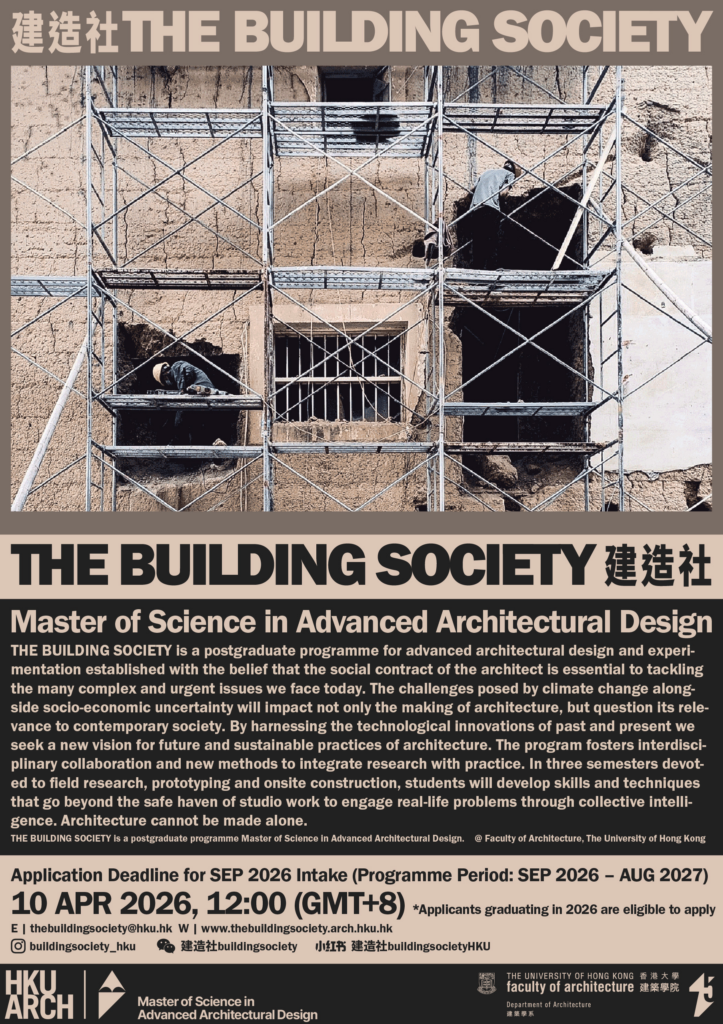THE BUILDING SOCIETY is a post-graduate programme for advanced architectural design and experimentation established with the belief that the social contract of the architect is essential to tackling the many complex and urgent issues we face today.
It offers a Master of Science in Advanced Architectural Design. Students and faculty research, design, and construct on-site collectively in a full-time, one-year, three-trimester programme to implement experimental building practices with local communities.
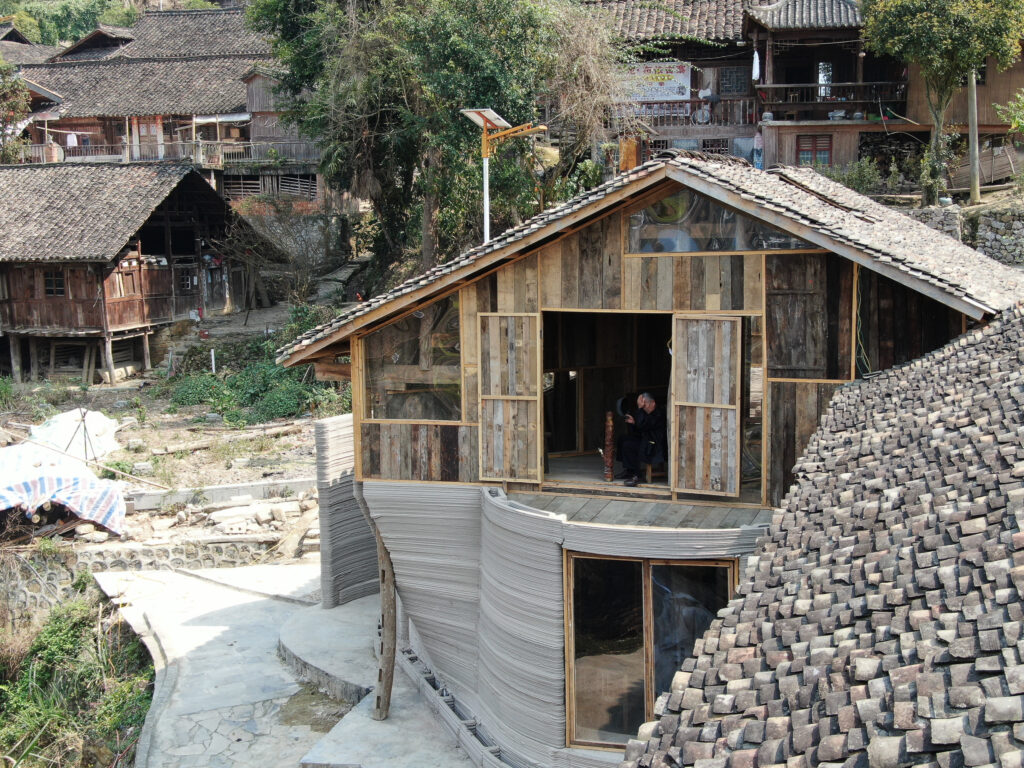
WHY
Why do we need new approaches in architecture?
THE BUILDING SOCIETY is a postgraduate programme for advanced architectural design and experimentation established with the belief that the social contract of the architect is essential to tackling the many complex and urgent issues we face today. The challenges posed by climate change alongside socio-economic uncertainty will impact not only the making of architecture, but question its relevance to contemporary society. By harnessing the technological innovations of past and present we seek a new vision for future and sustainable practices of architecture. The program fosters interdisciplinary collaboration and new methods to integrate research with practice. In three semesters devoted to field research, prototyping and onsite construction, students will develop skills and techniques that go beyond the safe haven of studio work to engage real-life problems through collective intelligence. Architecture cannot be made alone.
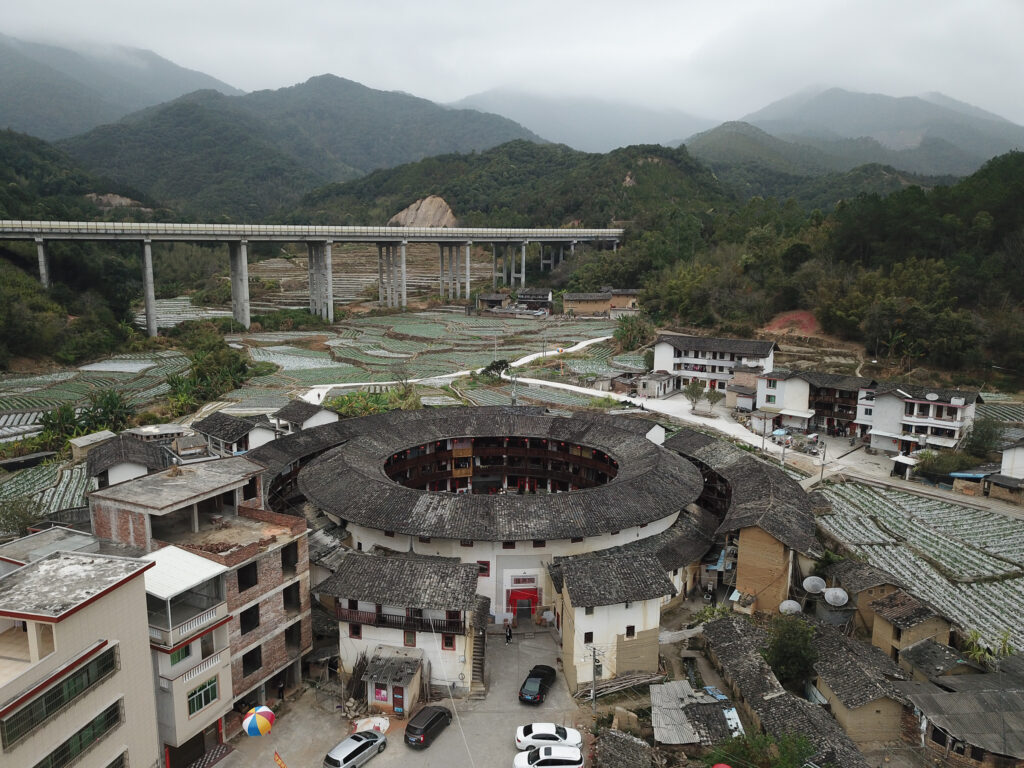
WHERE
Where will we work?
Architecture is on the frontlines of the climate change battle. The making of the built environment, coupled with rapid urbanization is one of the most unsustainable processes worldwide. But it is where the most potential for positive impact can be made. Our programme is based in The University of Hong Kong’s Faculty of Architecture, utilizing its many labs and fabrication facilities while having extensive engagement with Chinese villages at the forefront of the urbanization process. Our sites are not only physical places but exemplify a transition between traditional and modern living. These alternative lifestyles and livelihoods offer clues to sustainable ways of living. As architects we will investigate how to adapt locally intelligent building practices, low-cost materials and cutting-edge fabrication techniques coupled with traditional know-how. Our exploration will take place at the intersection of local and global forces – with the belief that universal problems are best solved through site specific action.

HOW
How will we conduct research and design?
Technology is constantly evolving and changing how we approach design and construction. But technology cannot solve it all. People are still the most important ingredient. Increased specialization of tools and skills necessitate greater emphasis on collaboration and the importance of collectivity. The program will investigate how cutting-edge technology can combine with the social and cultural uniqueness of each place. The techniques of architectural ethnography will allow us to understand and tackle the essential question of how we should live, with each other and with the environment.
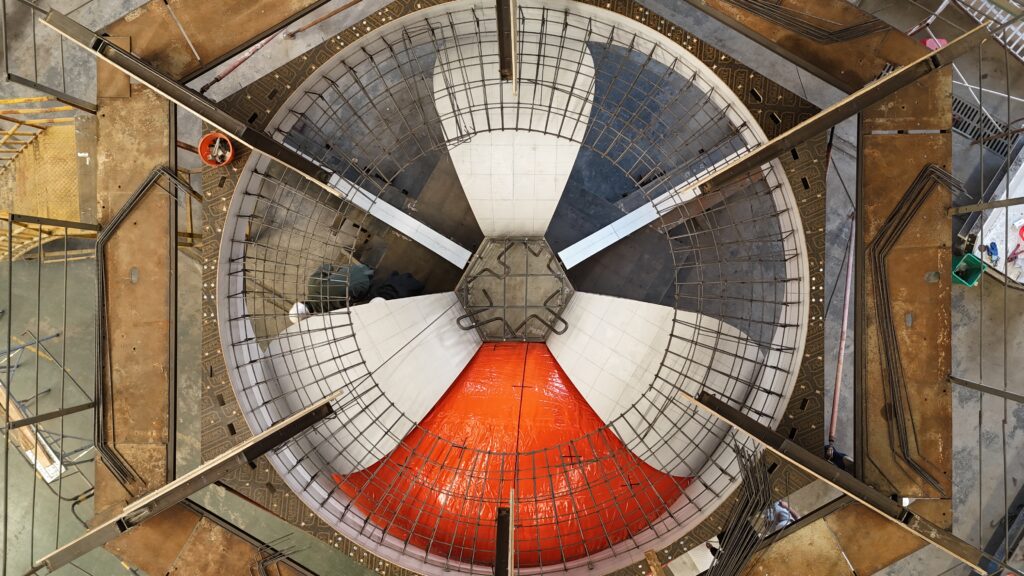
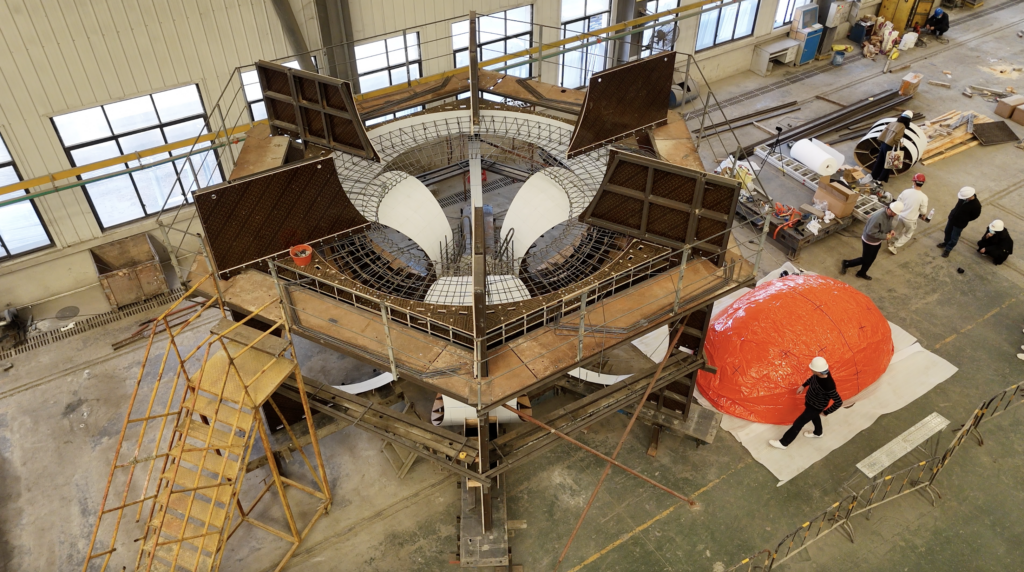
Image Credit: Chan Ka Chun
WHAT
What will we learn?
The course is based on the experiences of the program teaching team and international guest teachers. Each program year, we will conduct design research, create prototypes, and ultimately synthesize our explorations in an on-site building construction. The main focus is to learn about innovations in material and technology, as well as develop a deeper contextual understanding. Through these processes, we will explore architectural ideas that respond to contemporary challenges. This is a full-year program spanning three trimesters, consisting of 3 design studios, 3 core courses, and 6 elective courses.

WHO
Who are we?
Teachers will have extensive experience combining research and practice. Students will bring new insight and vision. Together we will tackle urgent and real problems. Together we will experiment through community engagement, incremental prototyping and trial and error. No one knows the answer yet.
The MSc in Advanced Architectural Design (MSc in AAD) at HKU Architecture is open for applications.
Starting from 2026, the programme will move to a single annual intake in September.
This application round is for September 2026 entry, with an application deadline of 10 April 2026.
